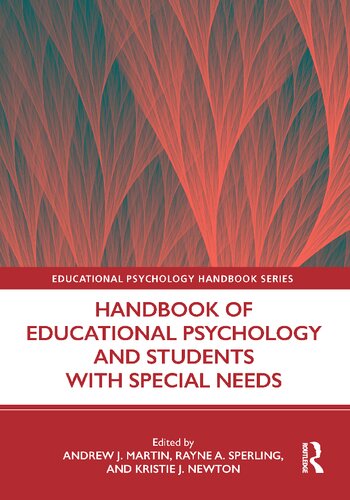

Most ebook files are in PDF format, so you can easily read them using various software such as Foxit Reader or directly on the Google Chrome browser.
Some ebook files are released by publishers in other formats such as .awz, .mobi, .epub, .fb2, etc. You may need to install specific software to read these formats on mobile/PC, such as Calibre.
Please read the tutorial at this link: https://ebookbell.com/faq
We offer FREE conversion to the popular formats you request; however, this may take some time. Therefore, right after payment, please email us, and we will try to provide the service as quickly as possible.
For some exceptional file formats or broken links (if any), please refrain from opening any disputes. Instead, email us first, and we will try to assist within a maximum of 6 hours.
EbookBell Team

5.0
48 reviewsHandbook of Educational Psychology and Students with Special Needs provides educational and psychological researchers, practitioners, policy-makers, and graduate students with critical expertise on the factors and processes relevant to learning for students with special needs. This includes students with attention-deficit/hyperactivity disorder, other executive function difficulties, behavior and emotional disorders, autism spectrum disorder, intellectual disabilities, learning disabilities, dyslexia, language and communication difficulties, physical and sensory disabilities, and more. With the bulk of educational psychology focused on "mainstream" or "typically developing" learners, relatively little educational psychology theory, research, measurement, or practice has attended to students with "special needs." As clearly demonstrated in this book, the factors and processes studied within educational psychology―motivation and engagement, cognition and neuroscience, social-emotional development, instruction, home and school environments, and more―are vital to all learners, especially those at risk or disabled.
Integrating guidance from the DSM-5 by the American Psychiatric Association and the International Classification of Diseases (ICD-10) by the World Health Organization, this book synthesizes and builds on existing interdisciplinary research to establish a comprehensive case for effective psycho-educational theory, research, and practice that address learners with special needs. Twenty-seven chapters by experts in the field are structured into three parts on diverse special needs categories, perspectives from major educational psychology theories, and constructs relevant to special needs learning, development, and knowledge building.